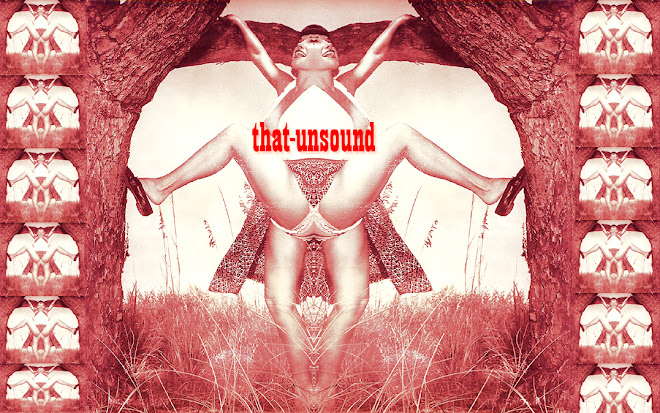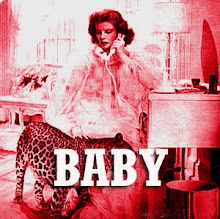30.11.10
29.11.10
glitched-staticked ear licking Linex-FM Radio
Linux Radio is an online radio broadcasting the latest stable version of the Linux kernel (currently 2.6.36.1), which is read in plain voice using eSpeak, an open source text to speech synthesizer.
There are currently 111011 (base 2) tunes in our database and we are working to add more. A new source file is selected randomly each time you load this page : remember, if you can't get enough, you can always open Linux Radio in two or more different browser tabs... Use the Source, Luke!
This radio station is dedicated to the best scientist ever : Dr. Sheldon Cooper from The Big Bang Theory.
click here
There are currently 111011 (base 2) tunes in our database and we are working to add more. A new source file is selected randomly each time you load this page : remember, if you can't get enough, you can always open Linux Radio in two or more different browser tabs... Use the Source, Luke!
This radio station is dedicated to the best scientist ever : Dr. Sheldon Cooper from The Big Bang Theory.
Labels: radio
21.11.10
tribute is not theft
Driscoll, 22 January 2010
Dude, Where's My Video?
... 'From official documentation of U.S. presidential debates to cameraphone recordings of police brutality, the videos on YouTube represent a densely interrelated system of making, curating, reading, and remaking that effectively constitutes a "crossroads" of participatory culture. Unfortunately, YouTube's centralized architecture has proven unusually vulnerable to spurious claims of copyright infringement. Of the 283,091 videos tracked by MIT Free Culture's YouTomb project, nearly one quarter have already vanished (YouTomb, 2009).' read more here
Long Live the Web The Web is critical not merely to the digital revolution but to our continued prosperity—and even our liberty. Like democracy itself, it needs defending
Long Live the Web
The Web is critical not merely to the digital revolution but to our continued prosperity—and even our liberty. Like democracy itself, it needs defending
...'
Why should you care? Because the Web is yours. It is a public resource on which you, your business, your community and your government depend. The Web is also vital to democracy, a communications channel that makes possible a continuous worldwide conversation. The Web is now more critical to free speech than any other medium. It brings principles established in the U.S. Constitution, the British Magna Carta and other important documents into the network age: freedom from being snooped on, filtered, censored and disconnected.Yet people seem to think the Web is some sort of piece of nature, and if it starts to wither, well, that’s just one of those unfortunate things we can’t help. Not so. We create the Web, by designing computer protocols and software; this process is completely under our control. We choose what properties we want it to have and not have. It is by no means finished (and it’s certainly not dead). If we want to track what government is doing, see what companies are doing, understand the true state of the planet, find a cure for Alzheimer’s disease, not to mention easily share our photos with our friends, we the public, the scientific community and the press must make sure the Web’s principles remain intact—not just to preserve what we have gained but to benefit from the great advances that are still to come.'
Full article click here
Labels: web
20.11.10
19.11.10
Tribute ... poem by Annie Finch
World premiere of Dale Trumbore's setting of the poem by Annie Finch, commissioned and performed by the Orange County Women's Chorus
Lisa Roetzel, solo
Eliza Rubenstein, Director
St. Wilfrid of York Episcopal Church, Huntington Beach May 2010
Labels: poetry song
16.11.10
brilliant essay on glitch linguistics: the Machine in the Ghost Static Trapped Mouths by Curt Cloninger
Republished in Nictoglobe, Vol. 18, Issue 4 (2010), Amsterdam, The Netherlands, with the kind permission of Curt Cloninger
'This essay applies Mikhail Bakhtin's language theory of "the utterance" to the machinic event of "the glitch" in order to illuminate contemporary glitch art practices, and to suggest fruitful ways in which they might proceed. I understand "the glitch" to be an affective event generated by a media machine (computer, projector, game console, LCD screen, etc.) running in real-time, an event which creates an artifact that colors and modulates any "signal" or "content" being sent via that machine. In 1962, John Glenn famously defined "glitch" as "a spike or change in voltage in an electrical current."1 "Glitch" has since come to demarcate a set of audio/visual artistic practices which capture, exploit, and produce glitch artifacts.
My goal is not to end all conversation about glitch art by ontologically overdetermining what a glitch is and how exactly it works. Instead, I pose this specific, particular position in the hopes of ending some of the more dead-end and circular conversations about the glitch. I also hope this essay will open up more fruitfully problematic conversations, and will lead to less banal, more conceptually rigorous works of art.' ... for more click here
'This essay applies Mikhail Bakhtin's language theory of "the utterance" to the machinic event of "the glitch" in order to illuminate contemporary glitch art practices, and to suggest fruitful ways in which they might proceed. I understand "the glitch" to be an affective event generated by a media machine (computer, projector, game console, LCD screen, etc.) running in real-time, an event which creates an artifact that colors and modulates any "signal" or "content" being sent via that machine. In 1962, John Glenn famously defined "glitch" as "a spike or change in voltage in an electrical current."1 "Glitch" has since come to demarcate a set of audio/visual artistic practices which capture, exploit, and produce glitch artifacts.
My goal is not to end all conversation about glitch art by ontologically overdetermining what a glitch is and how exactly it works. Instead, I pose this specific, particular position in the hopes of ending some of the more dead-end and circular conversations about the glitch. I also hope this essay will open up more fruitfully problematic conversations, and will lead to less banal, more conceptually rigorous works of art.' ... for more click here
Labels: digtal, glitch, language, sounded-language
14.11.10
Something new is going on...copiously copying ... In Praise of Copying 'by?' (no offense) Marcus Boon
From Marcus Boon's blog In Praise of Copying
'The New Yorker, National Post, Chronicle and Erik Davis on In Praise of Copying
Posted on October 16, 2010 by marcus3001Several thoughtful early responses to In Praise of Copying….
The first is an excellent blog post by Jenny Hendrix for The New Yorker concerning my Borgesian Brooklyn book launch and how to handle the universality of copying, in the bookstore and elsewhere.
The second is the audio of an hour long radio conversation I had with Erik Davis and Maja D’Aoust on their Expanding Mind show on the Progressive Radio Network. Erik was his usual brilliant self, and we covered everything from compassion for viruses, to cumbia, to the struggle to understand what sameness means. A great pleasure to chat with these guys.
The third is a piece in the National Post by Adam McDowell entitled, “Copying, A Right“, which looks at my book and other recent attempts to figure out how to balance an expanded right to copy with restrictions that support artists and other copyright holders. I do want to note that the conversation at the launch described at the end of the piece actually ended with a monologue by yours truly on the broader crisis of the workplace today, for artists, factory workers and everybody else, to which my questioner responded “that’s a good answer!” But this is generally a very astute look at a problem that we’re still barely able to even articulate.
Finally, a great piece in the Chronicle of Higher Education, discussing In Praise of Copying along with Lewis Hyde’s Common As Air, and the notion that books are always copies of other books.
The first is an excellent blog post by Jenny Hendrix for The New Yorker concerning my Borgesian Brooklyn book launch and how to handle the universality of copying, in the bookstore and elsewhere.
The second is the audio of an hour long radio conversation I had with Erik Davis and Maja D’Aoust on their Expanding Mind show on the Progressive Radio Network. Erik was his usual brilliant self, and we covered everything from compassion for viruses, to cumbia, to the struggle to understand what sameness means. A great pleasure to chat with these guys.
The third is a piece in the National Post by Adam McDowell entitled, “Copying, A Right“, which looks at my book and other recent attempts to figure out how to balance an expanded right to copy with restrictions that support artists and other copyright holders. I do want to note that the conversation at the launch described at the end of the piece actually ended with a monologue by yours truly on the broader crisis of the workplace today, for artists, factory workers and everybody else, to which my questioner responded “that’s a good answer!” But this is generally a very astute look at a problem that we’re still barely able to even articulate.
Finally, a great piece in the Chronicle of Higher Education, discussing In Praise of Copying along with Lewis Hyde’s Common As Air, and the notion that books are always copies of other books.
****You can now download the entire text of In Praise of Copying from the Harvard website'.
'... Perhaps these online archives just make visible and more “at hand” something that was happening invisibly, more distantly, but continuously before. At the same time, something new is going on. The physical book today is one copy, one iteration of a text among others. What that means for publishers, writers, readers and other interested parties is something that we are working out – on this webpage and elsewhere.” —Marcus Boon'
Another article on Marcus's book from the Chronicle here
Labels: copying, copyleft, Creative Commons
13.11.10
Half of the world's 6500 to 7000 languages are expected to disappear this century.
from the editor's desk
"What do you see, Grandson? I'm waiting for lilyseed, Granny." Garrwa, an aboriginal language spoken by forty people in Northern Australia.
.
.
"I am going to tell a story." Pawnee, a Caddoan language spoken by fewer than ten people in Pawnee County, Oklahoma.
.
.
pe: a:n-dE-pE-gEt jarqE pod'ol'E-gEt pojn'a:-s'i:-l tude o:Zi:-gElE jarqEdEn emej oj mi:dE c'uru:d'E
"From the bottom of the mountains, from the whiteness of the ice, our mother Jarxadan quietly carries its shining water downstream." [Listen.] Forest Yukagir, a Paleosiberian language spoken by thirty people in the Sakha Republic of Russia.
.
.
"If you do that, if you eat it, then you will be the way we are." Arapaho, a Plains Algonquian language spoken by 200 fluent elders on the Wind River Reservation in Wyoming, and by students of the language immersion school they founded in 2008.
.
.
"Don't you throw the boomerang, or I'll throw one at you." Kayardild, a Tangkic language spoken by eight people on islands off the northwest coast of Queensland, Australia.
.
.
"Nowadays they cannot speak any more." Baure, an Arawakan language spoken by thirteen people in the Beni Department of Bolivia.
.
.
"The jaguar walks in the dark, grabs wild pigs, bites and eats them, and walks while he shits, it is like that." Kwaza, an indigenous language spoken by 25 people in western Brazil.
.
.
"It's a white man's gun, you know." Lake Miwok, an Utian language spoken by three people in Northern California.
.
.
"This is the river Dulumtu, where there are neither animals nor fish." Udege, a Tungusic language spoken by forty people in Far Eastern Russia.
.
.
"I feel like hitting the road." Dumi, a Kiranti language spoken by eight people in the Khatang district of Nepal.
Labels: language, lost languages
Subscribe to:
Posts (Atom)





















